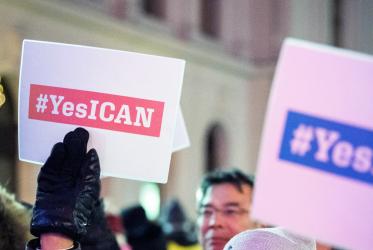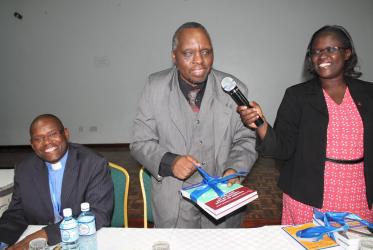Displaying 61 - 80 of 187
10 December 2018
WCC calls for immediate end to siege and civilian attacks in Syria
26 February 2018
Religious organizations speak up on refugee crisis at UN event
29 January 2018
Tveit: Beyond national borders, we are one humanity
23 January 2018
Tveit to World Economic Forum: “Say no to nuclear weapons”
22 January 2018
WCC condemns terrorism attacks
02 November 2017
Praying for one another, even when we disagree
02 March 2017
An interview with the Ethiopian Patriarch, Abune Matthias
14 February 2017
New theological materials offer fresh perspective on disabilities
08 December 2016
Faith communities explore concrete climate action at COP22
10 November 2016













